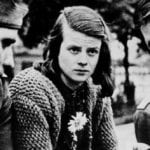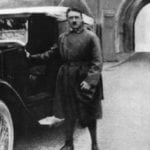 Movies and TV
Movies and TV  Movies and TV
Movies and TV  Creepy
Creepy 10 Lesser-Known Shapeshifter Legends from Around the World
 Animals
Animals 10 Amazing Animal Tales from the Ancient World
 Gaming
Gaming 10 Game Characters Everyone Hated Playing
 Books
Books 10 Famous Writers Who Were Hypocritical
 Humans
Humans 10 of the World’s Toughest Puzzles Solved in Record Time
 Mysteries
Mysteries 10 Scientific Mysteries We Don’t Fully Understand
 Weird Stuff
Weird Stuff 10 Celebrities Who Have Admitted to Alien Encounters
 Our World
Our World 10 Surprising Secrets of Notre Dame Cathedral
 Miscellaneous
Miscellaneous 10 Intriguing Origins of Popular Carnival Rides
 Movies and TV
Movies and TV 10 Actors Dragged out of Retirement for One Key Role
 Creepy
Creepy 10 Lesser-Known Shapeshifter Legends from Around the World
 Animals
Animals 10 Amazing Animal Tales from the Ancient World
Who's Behind Listverse?

Jamie Frater
Head Editor
Jamie founded Listverse due to an insatiable desire to share fascinating, obscure, and bizarre facts. He has been a guest speaker on numerous national radio and television stations and is a five time published author.
More About Us Gaming
Gaming 10 Game Characters Everyone Hated Playing
 Books
Books 10 Famous Writers Who Were Hypocritical
 Humans
Humans 10 of the World’s Toughest Puzzles Solved in Record Time
 Mysteries
Mysteries 10 Scientific Mysteries We Don’t Fully Understand
 Weird Stuff
Weird Stuff 10 Celebrities Who Have Admitted to Alien Encounters
 Our World
Our World 10 Surprising Secrets of Notre Dame Cathedral
 Miscellaneous
Miscellaneous 10 Intriguing Origins of Popular Carnival Rides
10 Jews Who Fought In Hitler’s Nazi Army
Roughly 150,000 men of Jewish descent fought in Hitler’s army. While their families back home were being corralled into ghettos and sent off to death camps, these men were in Poland, France, or Russia, spreading the fascist system that was killing their people across Europe.
It’s hard to understand, but many Jewish Germans signed up for military service. Each man had his own reason to do it—often one of necessity. Told together, their stories give an incredible insight into life for a German Jew at the break of World War II.
10 Werner Goldberg
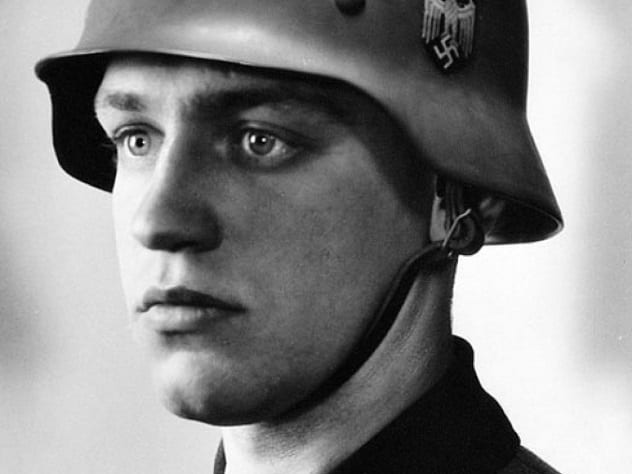
There was a face you could find plastered on the walls of Nazi Germany: a swastika at his chest, standing proud over a proclamation that this was “The Ideal German Soldier.” But the ideal German soldier wasn’t a member of Hitler’s master race. He was half-Jewish.
Werner Goldberg had joined the army after years of struggling with his own identity. His father never told him he was Jewish; instead, Werner found out when he was 14 in the most humiliating way possible. His principal declared that their school would be Jew-free—and then publicly singled Goldberg out as the school’s Jewish problem.
In an instant, Goldberg found himself on the outside, and he was desperate to fit back in. He signed up for the army the first chance he could, getting in early enough to fight in the first invasion of Poland.
But back at home, his father struggled through the horrors of the Holocaust, and Goldberg was forced to use his influence to save his father more than once. At one point, after learning that his father was going to be sent to Auschwitz, Werner snuck into the building they were using as his prison and broke his father out.[1]
It worked. At the end of the war, all but one member of his family had died. The only one left to greet Werner was the Jewish father he had saved from the death camps.
9 Nachemia Wurman

It has long been debated just how well the soldiers of the Nazi army understood what was happening behind the concentration camp walls, but among the Nazis’ 72nd Infantry, there was one man who definitely knew it firsthand: Nachemia Wurman.[2]
Wurman was a Holocaust survivor. He was a Polish Jew who had been sent to labor camps in 1944, where he’d endured every horror imaginable. He’d seen his own father executed, and he’d even been forced to bathe using soap made from the bodies of his campmates.
In time, he managed to escape. He fled west, hoping to find the Soviet army—but instead, he ran directly into a Nazi battalion. Wurman knew he wouldn’t be able to sneak past them, so instead, he walked straight up to them, shook their hands, and introduced himself as “Marion Schmidt,” German-born chef.
Soon, Wurman was a part of the Nazi battalion. From then on, he spent the war with a swastika on his arm, feeding the soldiers and praying that nobody would realize who he really was. “The best hiding place,” Wurman said, “was in the mouth of the wolf.”
8 Arno Spitz
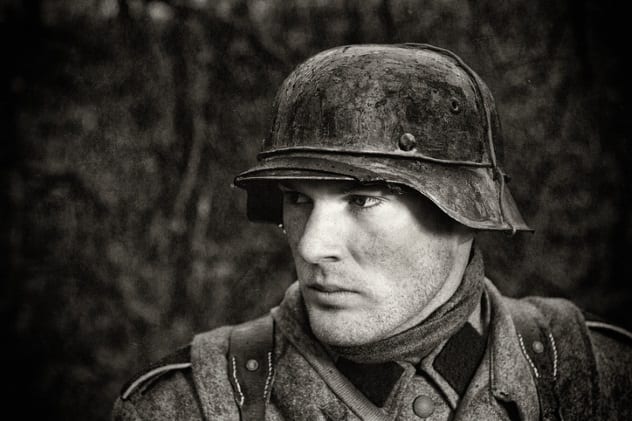
One of the more decorated men in the Nazi army was Arno Spitz. By the end of the war, he’d won three Iron Crosses, the highest award a Nazi could earn for bravery.
He was a paratrooper, one beloved by the Nazi army—even if they absolutely loathed his father. Spitz’s father was Jewish, and he’d suffered from such fierce persecution back home that, early on during the rise of Nazi Germany, he fled the country for the United States.
Spitz, however, stayed and made such an impression on his superiors that he didn’t even have to hide his parentage. In 1940, under Himmler’s orders, the Nazis kicked every half-Jewish soldier out of the army, but Spitz was such an effective soldier that he was allowed to stay.
To the end, he insisted that, by fighting with the Nazis, he did nothing wrong. He fought for Germany, not for Hitler, he told Dateline NBC in 2002, declaring: “There is a difference.”[3]
Not everyone in his family, however, sees it the same way. Spitz said that his daughter has accused him of participating in the Nazis’ crimes against his own people. But despite her rebukes, Spitz refused to hide or apologize for his time fighting in Hitler’s military. “I don’t have to,” he said. “I didn’t do anything that is a crime.”
7 Hans-Geert Falkenberg

“I did not want to join the army,” Hans-Geert Falkenberg said. “I had to join the army.”
He joined the German army as soon as war was declared. Jews were already starting to see their shops destroyed and being harassed in the streets, and Falkenberg felt a need to connect himself to the German side of his identity to stay alive.
He’d heard his teachers tell his classes that the Jewish race was inferior, and, desperate to prove his equality, he’d spent his teenage years trying to be the best at everything the Nazis valued. Joining the army was just a natural next step for him.
But as he fought in France, his grandmother was sending him letters, letting him watch the Holocaust slowly unfold back home.[4] Then, one day, the letters stopped. His grandmother, he would soon learn, had been sent to a concentration camp.
It was a shock—not just for him but for those who cared about him, as well. One friend of his wrote to him, with dismay: “I believe that the Jews are Germany’s misfortune, but that has nothing to do with grandmother!”
The rest of his family had already fled to England, and Falkenberg considered joining them. Trapped in the middle of Europe, surrounded by the Nazi army, however, he just didn’t know how it could be done. “The safest thing was to stay in the army,” Falkenberg would later say. “No question.”
6 Helmut Kopp
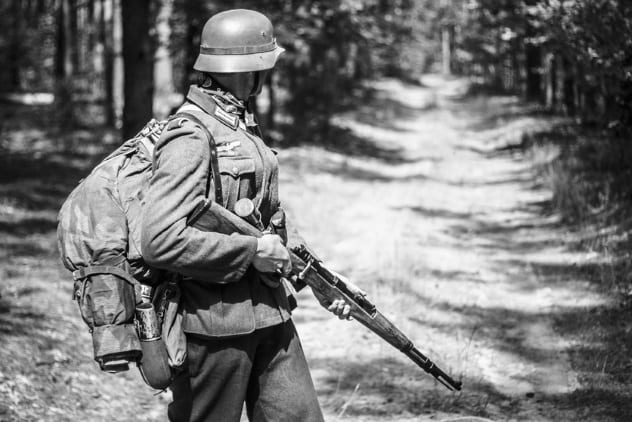
Helmut Kopp was the son of a German man and Jewish woman, but it was the Jewish side of his family that left him feeling persecuted.
As a boy, Kopp said, his maternal grandfather would openly disrespect him, refusing to view him as a part of his family. When he was chided by his wife and reminded that this was their daughter’s son, his grandfather snapped back that, no, this wasn’t his grandson—this was their son-in-law’s goy. “After how my grandfather had treated me,” Kopp said, “I didn’t want to own up to my Jewish past.”
When the war started, he signed up for the Wehrmacht, and when they handed him his papers, he marked himself down as “full Aryan.” For years, he fought with a Nazi artillery unit. Kopp was aware of the concentration camps, but he justified what he was doing by simply not thinking about it. “You didn’t think about the Fuhrer or the nation,” he said.[5] “I thought only about myself—that either my tank or something will be hit and then I’ll be gone anyway, or I’ll make it through.”
5 Friedemann Lichtwitz
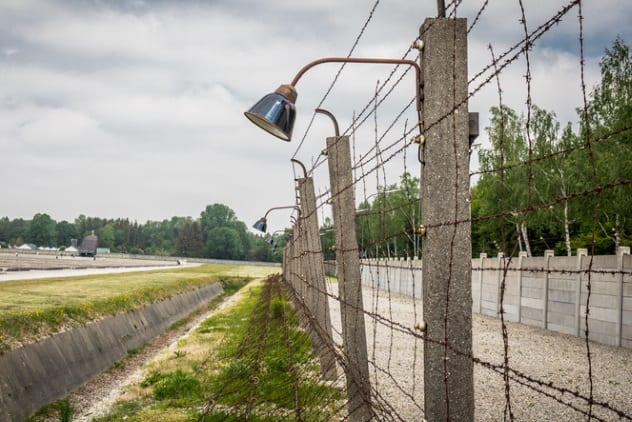
“In the German army, I was in a pretty good situation,” Friedemann Licthwitz said. “It was a good bunch of guys. I felt comfortable there.”
Litchwitz claimed that, when he joined up with the Nazi army, he had no idea how bad the persecution against the Jews in Germany was becoming.[6] He only knew that, in the army, he was accepted and treated as an equal and that, when he was home in Germany, he was not.
After he was kicked out in the 1940 military purge, however, Litchwitz found out exactly how bad it was. He was sent to a forced labor camp and then, after a failed attempt to escape, into Dachau: one of Germany’s deadliest concentration camps.
An NBC reporter asked him how he felt, having gone from the inside of the Nazi army to a death camp. “I can’t say,” was all Lichtwitz could reply. “I don’t know how to answer that.”
4 Major Leo Skurnik
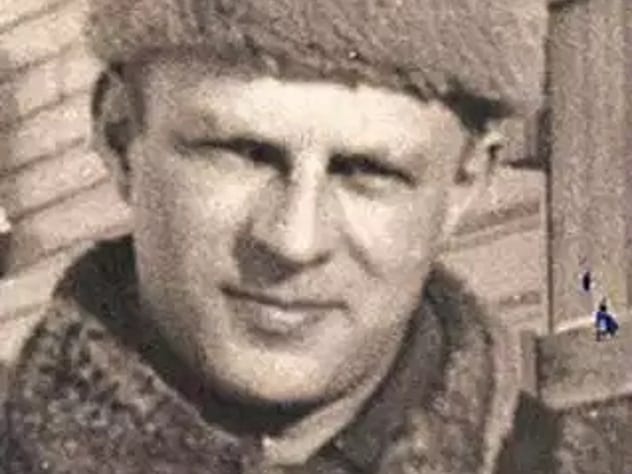
Major Leo Skurnik was working as a doctor in the Finnish 53rd Infantry. He was a Jew, but he was also a Finn—and that meant that, in the Soviet Union, he and the Nazis had a common enemy. That put him side by side with a German SS division, fighting against a Russian invasion and trying to help every man who was injured by the Russian shells, whether he was a Finnish soldier or a member of the SS.
“He had taken the Hippocratic oath,” Skrunik’s son told the National Post.[7] “He wouldn’t turn away an injured man, whatever his nationality.” Skurnik, however, took it further than that. He helped clear paths for the German army to attack and, when a German soldier was in need, would rush into no man’s land, risking his own life to save wounded Nazis.
He saved the lives of more than 600 men, many of them members of the SS, by organizing an evacuation of a field hospital that was being bombarded by Russian shells. Skrunik led the wounded Germans across 8.9 kilometers (5.5 mi) of bogland and, when it was all over, was awarded with an Iron Cross.
Skurnik turned it down. He claimed that as soon as he got word that the Germans wanted to present him with their highest honor, he told his commanding officer: “Tell your German colleagues that I wipe my arse with it!”
3 Harry Matso

“We’ve been called ‘fascist,’ ” Harry Matso said, “which is a lie.”[8]
He was a member of the Finnish army, a man who fought for a force allied with the Nazis. If the war had ended in their favor, his race—the Jewish race—would have been exterminated. Still, Matso insists that he was no fascist.
“Finnish Jews fought for Finland’s independence,” he said. “Not for Germany’s war aims.”
He’d joined the war after being conscripted by his nation. He answered their call—even though he knew that his nation was allied with the Nazis and though, by 1942, he’d started hearing rumors of the systematic extermination of Jews in Germany.
But Matso feared life under Soviet rule every bit as much. Caught between two tyrants, he sided with the one nation he believed would take care of him: his homeland of Finland. Still, Matso fought, rebelling in his own small, quiet way. When he saw a German soldier, he said, he would staunchly refuse to salute.
2 Emil Maurice
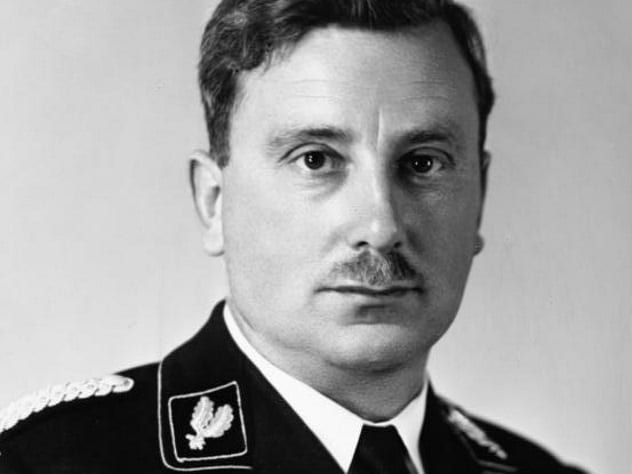
One of the founders of the SS was, by Heinrich Himmler’s standards, a Jew. His name was Emil Maurice, and he was classified as SS Member #2—second only to Adolf Hitler himself.
Maurice had been a part of the National Socialist Party from the start. He joined up with Hitler in 1919 and soon rose up to be the supreme leader of Hitler’s Sturmabteilung. He joined in the Beer Hall Putsch, Hitler’s failed coup d’etat in 1923, and sat with him in prison, where he even helped Hitler write Mein Kampf.[9]
Maurice couldn’t have been closer to Hitler. The two even shared a lover: Geli Raubal, Hitler’s niece, had affairs with both men, a fact that would create the only split between them. Still, the bond between Hitler and his SS Member #2 was so strong that when Heinrich Himmler publicly exposed Maurice’s Jewish ancestry and demanded that he be expelled from the SS, Hitler had Maurice declared an “honorary Aryan” and saved his life.
1 Erhard Milch
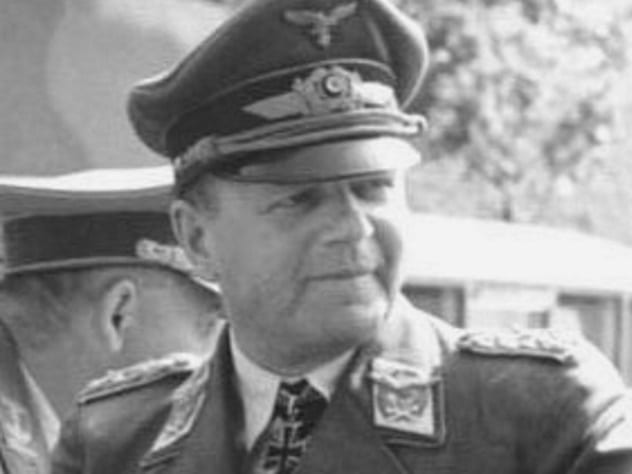
There are Jews who fought for Hitler even though they knew the horrors of the Holocaust, but Erhard Milch went even further. He didn’t just fight for Germany despite the atrocities—he joined in. He was a member of the German War Cabinet and the Nazi Air Force’s chief of staff. Few were higher up in the Nazi party than he was, even though it was public knowledge that his father was Jewish.
Milch, however, had friends in powerful places. Hermann Goering saw him as his protege, and to keep his friend safe, he had Milch’s mother sign a statement saying that Erhard wasn’t truly his father’s son so that Goering could have him registered as “full Aryan.”
No part of Milch ever seems to have felt sympathy for his father’s people. During the Nuremberg trials, he was charged with experimenting on Jewish prisoners in Dachau. They accused him of playing a role in human experiments that sent Jewish prisoners into dangerous altitudes to see how high they could go before they died, as well as others that tested how cold water had to be before the temperature would kill someone.
Milch never apologized. When the trials came, he stayed true to his mentor, speaking out in Goering’s defense. In the end, he was prosecuted as a Nazi war criminal.[10]
Read about more sinister Nazis on 10 Facts About The ‘Spandau Seven’ Nazis and 10 Nazis Who Killed Themselves With Cyanide Suicide Capsules.







